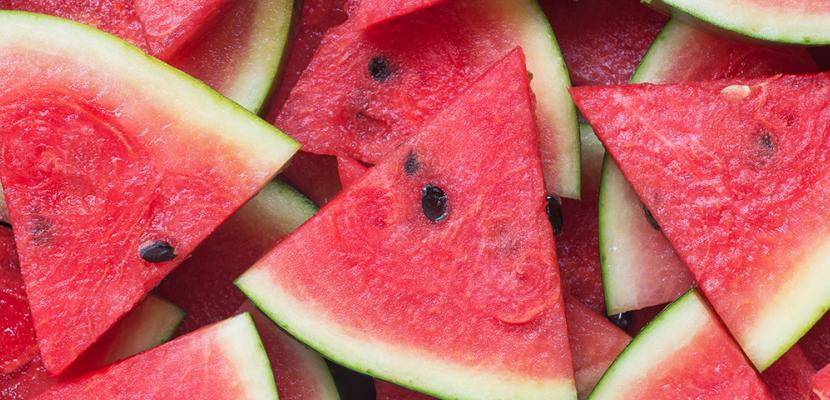
So, you’re interested in studying nutrition at university but aren't quite sure which course to choose? It’s a very common question asked by both high school students and those looking to study nutrition as a second degree. Accredited Practising Dietitian, Senior Teaching Fellow and Internships Coordinator Christina Turner shares her five tips to help you decide.

1. Understand the difference between a Dietitian and a Nutritionist
Nutrition and healthy eating are hot topics on social media and people are increasingly interested in making a career of it. However, not all nutrition courses will get you the same qualification. Understanding the different job roles of a ‘Dietitian’ versus a ‘Nutritionist’ will go a long way to help you decide which program is best for you.
Dietitian
A ‘Dietitian’ is someone who has trained at University to be skilled at providing dietary advice to any person who has a medical health condition or for general health and wellness.
A dietitian might work in a hospital, community health centre, aged care facility, with athletes or run their own private practice clinic. The term Accredited Practising Dietitian (APD) is a credential recognised in Australia. An APD is both a dietitian and nutritionist and can work in a range of different roles. If a community member sees an APD for dietary advice, they can be assured the dietitian has completed an accredited course, is up to date with new and evolving evidence, and has the necessary skills to help them. Community members are also able to claim back through Medicare and/or their private health fund if they’re seeing a dietitian in a private practice.
Nutritionist
The term ‘Nutritionist’, is not regulated and this makes it a bit tricky for the general public to know the level of training any particular ‘Nutritionist’ has undertaken. For example, you could complete a 3-month online course about nutrition or a 3-year nutrition university degree and both would allow you to work as a Nutritionist.
If you complete a shorter online, college nutrition course or university nutrition degree, you’ll likely have the skills to provide general health and wellness advice to community members. If you wish to work in a role where you can provide advice for specific health conditions, you may not have the knowledge and skills if the course did not include dietetics and medical nutrition therapy training. Community members are generally unable to claim rebates through Medicare or private health insurance if they are seeing someone with this kind of training.
If you complete a university degree with a focus on nutrition (and not dietetics), you are likely to work at a population level to help communities change their eating and improve their health. Examples of this kind of work includes research projects or health promotion work in rural Aboriginal and Torres Strait Islander communities (for example), projects in schools and within non-government organisations such as Diabetes Australia, The Heart Foundation and Oz Harvest. If the degree also includes ‘dietetics’, you would still have these options open to you but would gain the added qualification of being an APD.
2. Know the pre-requisites of the program
If you are thinking of studying nutrition, you’ll need to be passionate about (or willing to learn about) science. Understanding chemistry and the human body is the foundation for learning about how nutrition affects our health.
If you are in high school, I would recommend studying biology and chemistry. If you are undertaking an undergraduate degree already, ensure you are studying chemistry, biochemistry, physiology and anatomy. Every University will differ with the pre-requisite requirements for entry into their nutrition program. Therefore, have a chat to your preferred University prior to making your decision. If you have not studied the required subjects at school or in your current degree, you might be able to undertake what is called a ‘bridging course’ prior to commencing the nutrition program.

3. Postgraduate? Or undergraduate?
In Australia, nutrition degrees can be undertaken as an undergraduate bachelor’s program or a postgraduate master’s program. Generally speaking, most bachelor’s degrees are 3-4 years full time and most master’s degrees are two years. As expected, there are pros and cons for both types of programs.
The case for a Bachelor's Degree
You are able to study nutrition straight away after high school. In some circumstances you’ll gain a dietetics or nutritionist qualification quicker.
The case for a Master's Degree
You will gain a more solid foundation knowledge and life experiences from completing two degrees
You will have a higher level of University study which can aid in the competitive job market. Additionally, in some states, your starting salary will be higher if you’ve completed a master’s degree.
4. Get inquisitive
The actual subjects in nutrition and dietetic university degrees do vary slightly. Although you may get a similar qualification following the completion of your program, knowing and understanding the unique aspects of each program will help you decide which program is right for you.
Here are some questions to get you started:
- The practical workplace placements – Find out where students are commonly placed and if there are any hidden costs. For example, will you have to travel? What are the associated costs for these travels?
- What nutrition research are the University staff involved with? – As part of the degree, you may conduct a research project. The research topics staff routinely conduct in their own job, will often influence the nutrition topics you will be able to work on in your degree.
- The program focus – Do they focus on producing graduates aimed at working in any particular area? This might be hospital work, public health, food service, research or media. For example, within our program at Bond University, we have focus areas on research, international nutrition, clinical skills and entrepreneurship.
- Extra-curricular activities – Do they offer volunteering opportunities in your areas of interest?
5. Identify employment opportunities
Obtaining a job following graduation is probably at the top of your mind, so you might like to ask your preferred nutrition program things like:
- What proportion of graduates are gaining employment after their particular degree? – How long after graduation are graduates securing jobs?
- Does the program offer mentoring with the job application process and your career development? – This, as well as business studies and entrepreneurship training will help ensure you are competitive for any advertised nutrition and dietetic position or skilled to build your own business in the field.
If you are interested in studying nutrition, I would suggest contacting the teaching staff at various Universities, and find out what their expertise and special interests are, and what they can offer you.
Written by Christina Turner, Accredited Practising Dietitian, Senior Teaching Fellow and Internships Coordinator.
Find out more about studying Nutrition and Dietetics at Bond.